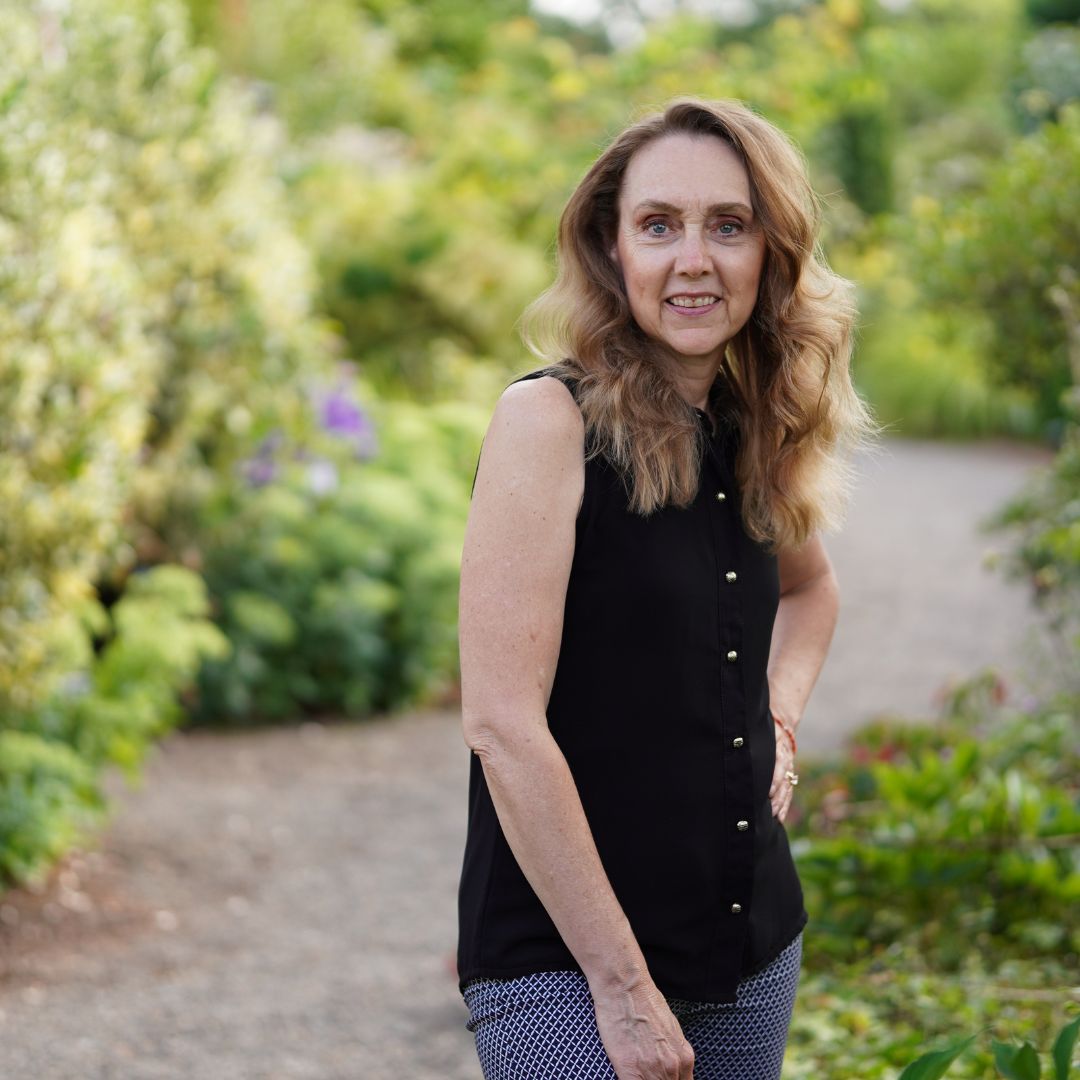Let’s say you’re in your forties and you have a few symptoms that lead you to make an appointment with your doctor. You’re:
- Tired
- Moody
- Gaining weight
- Dealing with irregular periods
- Having trouble sleeping
You’re only in your forties. You’re too young for menopause, right?
Think again.
I remember sitting in biology class back in high school as the teacher discussed reproduction.
Here’s the male parts. Here’s the female parts. This is how you make a baby. The. End.
Puberty. Raging hormones. Those were on the discussion list.
But why wasn’t there a course that took it further? Why weren’t we given realistic expectations about what to expect for life?
Does anyone know about menopause?
When you have an ache or pain, your doctor is the most natural person to turn to. That’s what yearly checkups are for.
- You’re sick and tired of being tired
- The mood swings are almost more than you can bear
- No matter what you do, you can’t get rid of the extra weight
- Irregular periods are impacting the way you live
- And you can’t even remember the last time you had a good night’s sleep
So you sit down with your doctor. She’s a family practitioner, or maybe an OB/GYN. Surely she’s knowledgeable in all things around perimenopause and menopause.
Would it surprise you that very few medical students are trained on menopausal issues at all? According to a NY Times article, medical students may have one hour of training in medical school. Residents from internal medicine, family medicine, and gynecology state they’ve only had one to two hours of instruction. About 20 percent said they had no training at all. And only 7 percent felt qualified in any way to talk with women about menopausal treatment.
I dug a little deeper. A small survey of U.S. obstetrics and gynecology residents found that fewer than one in five receives formal training in menopause medicine, and that seven in ten would like to receive it. It’s not that doctors are against learning about it. It’s the fact that very few programs offer substantial information.
The 2010 US Census estimated that 50 million US women would be menopausal by 2020. The average age of menopause is 51. Considering women live on average 85 years, that’s over three decades of life after menopause takes place. Think there are a lot of misunderstood women out there?
Women are underrepresented in all facets of healthcare.
For example, even though heart disease is the leading cause of death in women, they account for less than 40 percent of participants in research studies. Without equal testing, medical treatments for women might not be as safe as for men.
Another report found that in more than 90 percent of case studies, women experienced stronger side effects than men, and experienced adverse drug reactions at nearly twice the rate of men.
I know; I’ve stated a lot of facts. I like to research, and am continually astonished by what I find.
If you’re in perimenopause, or are menopausal, I have one piece of advice for you:
You can’t expect any of your medical team to fully understand what you’re going through. You have to advocate for your own wellness, and not accept “I don’t know” as an answer.
It’s time to TAKE CHARGE of your own wellness.
Let’s add to the confusion
Women are underrepresented in all facets of testing in healthcare. And even when they do test, they often get things wrong.
How do you feel about HRT – hormone replacement therapy?
In 2002, a US-Based Women’s Health Initiate study reported a link between HRT and breast cancer. The results showed the risks far outweighed the benefits, and for years, women wouldn’t even consider these products.
The problem is these test results were skewed. And once again, not a lot of follow-up testing was performed. Women believed it. Doctors believed it. And the negative advice won out.
I’m not advocating for HRT. I’m not offering any advice about your health.
But I personally did a ton of research on hormones, and have been taking bioidentical hormones for several years.
That’s just one of the issues that come with a changing body.
What are you supposed to do?
Become your own wellness advocate
I feel a lot of people right now are trusting the medical establishment, trusting what they have to say, without really thinking about the final impact on their overall wellness.
Just because someone suggests a treatment, medication, or solution, doesn’t mean it’s right for you.
Sometimes you have to stand up for your own internal beliefs, ask questions, and move towards another path. You can start by doing these things now:
Believe in yourself
Start by defining what wellness means to you. What does it include? What will you say no to? What will you say yes to? Do you understand your issues and where you stand? Are you willing to walk away from some advice, to seek out something better?
Start by asking: Does this make sense?
I listened to a podcast a few months back featuring New York City’s mayor, Eric Adams. He’s published a book Healthy At Last: A Plant-Based Approach to Preventing and Reversing Diabetes and Other Chronic Illnesses. After waking up, unable to read his alarm clock, he set out to find answers. When he received a diagnosis that led to what seemed like a one-path road to failure, he changed. Instead of listening to doctors tell him he would have to learn how to live with diabetes, he started researching. Where most people would start looking for advice on how to “live with diabetes,” he went on a quest to find out how to “reverse diabetes.”
What have you Google’d about your health? Have you changed your thinking and found great advice?
The medical profession isn’t always right. They only approach it with their belief systems in place.
It might not be the best advice for you.
Decide what you want
After helping a loved one through his cancer journey, I learned there is a time and place for everything, death included.
Your journey is unique to you. What is it that you really want?
Clarify your journey, and what you hope to gain.
We’ve all read “miracle” stories about how people find amazing strength from within, and turn their lives around when they’ve been given bad news. I believe it starts by internalizing where you are, and solidifying your own plan.
Things will go well if you are set with where you’re going.
It’s not always about what other people think you should do.
Sometimes it’s about taking the road you deliberately choose to travel. Even selecting the right path for the final stages of life permits you to be in the driver’s seat.
It’s especially true with menopause. When you find out that the majority of doctors aren’t trained in it, it’s important to trust your gut instincts, and follow a path that resonates within you.
Gather the facts
We’re living in a time where people hide facts. Toxic media sources have one belief, and they will ram it down your throat until you walk away.
You’ll never get facts by believing the first thing you read or hear.
Dig deep. Form your beliefs carefully. Then dig a little more.
I’ve changed my mind many times around wellness. Sometimes it’s impossible to ignore the facts once you see them popping up again and again.
Gather support
It’s hard to stand firm with your own belief system. If you’re going to sway at all from saying “yes” to everyone around you, you’re going to get an occasional lash-out.
You can walk away from those that don’t agree with your decisions, and try to sway you back to theirs. Do a little more research. Make a few more calls.
Each of us deserves to approach wellness how we see fit. And if someone doesn’t support your decision, find someone who will.
You might be surprised at who steps forward and shows you a new path.
I can’t imagine my own menopausal journey without finding a menopause specialist. This isn’t just an average OB/GYN. You can use Google or places like the North American Menopause Society to help you find someone to trust. I also look for naturopathic specialists who focus on hormonal issues. They can help you with hormone tests to measure things like estrogen, progesterone, and testosterone levels, just to name a few.
I also recommend journaling about your experiences, being as specific as you can. This will help your practitioners find better solutions that work for you.
Do you look at yourself as your own wellness advocate?
The only way to move well through perimenopause, menopause, and into your postmenopausal years is to take charge of the process, every step of the way.
Instead of living with it, find ways to reverse it. Search out methods to bring yourself back to wellness, and be the best you can be.
At every age.
It’s possible.


+ show Comments
- Hide Comments
add a comment